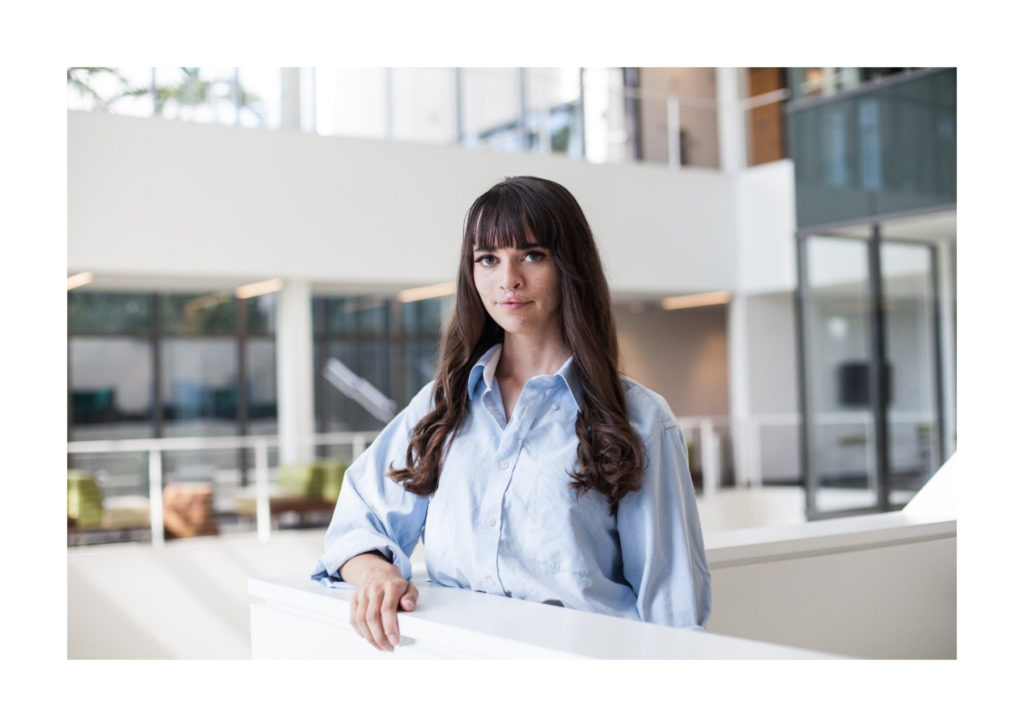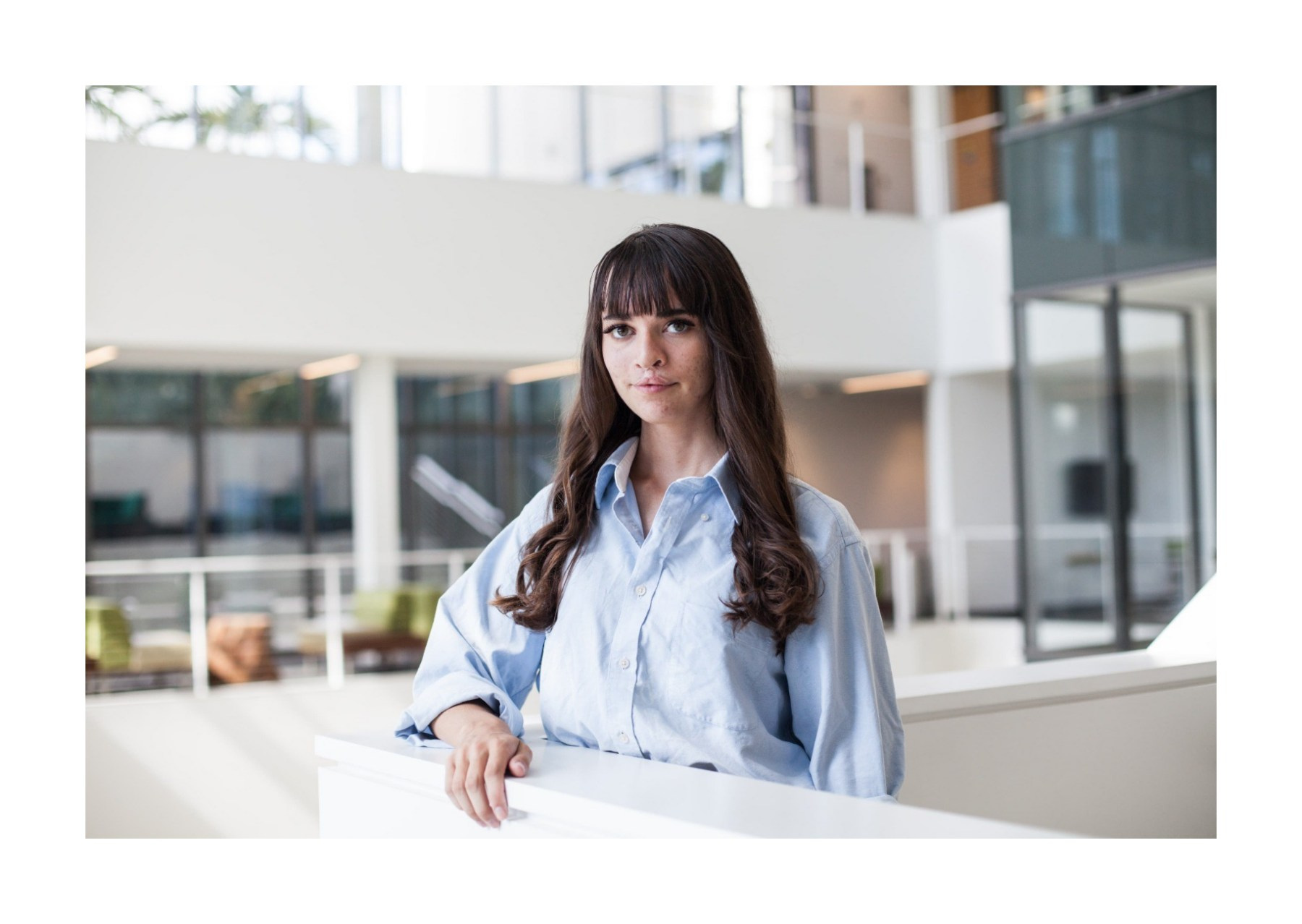
By Rachel Freeman
At USF St. Petersburg, Megan Hammer’s passion to help people is fueling her drive to raise awareness of human trafficking with the new campus organization SOSO Coalition, which stands for Seek Out, Speak Out.
Hammer, 22, started the SOSO Coalition as an extension of her internship with Selah Freedom, a national organization that aims to end human trafficking through awareness, prevention, outreach and residential work.
“After my internship, I realized how little people in the community and on campus know about sex trafficking,” said Hammer, a senior global business major. “I was thinking up ways to bring that awareness to our campus.”
Sex trafficking is “a form of modern slavery, where adults and children are coerced into doing commercial sex acts against their will,” according to the Polaris Project, a nonprofit organization working to end human trafficking.
Florida is ranked third in the nation for the most reported instances of human trafficking, with half of those victims under the age of 18, according to the Florida Department of Health.
Hammer explained that sex trafficking is one of the fastest growing crimes because it can generate a large amount of money quickly.
By seeking information about human trafficking and speaking against it, the SOSO Coalition hopes to educate USF St. Petersburg students and make strides against human trafficking in the Tampa Bay area.
The club gives presentations about sex trafficking that involve facts, statistics, real case studies and personal stories. The SOSO Coalition also connects members with community partners to help with advocacy, internships and volunteer opportunities.
“We want to promote education by gearing students with the tools they need to spread awareness,” Hammer said.
Britney Clarke, a member of the SOSO Coalition, said that the group is helping the community by inviting victims to speak out about their experiences, attaching personal stories to further help people grasp the severity of the issue.
“When you make something a statistic, people may feel sad about it today, but by the next day, they’re onto more ‘important’ issues,” Clarke said. “Replacing the data with images of these victims and giving them a chance to speak out makes the issue real.”
In November, the SOSO Coalition partnered with Bikers Against Trafficking to host a campus event with speaker Rainey Cannarino, co-founder and international vice president of Bikers Against Trafficking. Cannarino was a victim of sex trafficking from ages 3 to 17, enduring years of physical and psychological abuse before escaping. Now, she uses her experiences to help others.
Cannarino explained that sex trafficking happens in every socioeconomic class, gender, race and age.
She urges people that if they see something suspicious, they should report it to the national sex trafficking hotline or to a local organization immediately. Getting involved could add more danger because most people are not prepared to deal with the severity of human trafficking situations.
“People need to understand that this abuse happens all too much,” Cannarino said. “Please choose to make a difference. Don’t wait to get involved because for some, it’ll be too late.”
The campus event to share Cannarino’s story went very well, Hammer said. Despite a small turnout, the crowd was engaged in discussion and seemed deeply moved by Cannarino’s experiences.
“I could see the impact it had,” Hammer said. “There were several people who stayed behind after the event to ask questions and just listen further to what the organization members had to say.”
Clarke was enlightened by Cannarino’s story during the event.
“She doesn’t want pity,” Clarke said. “She’s taking her experiences that still affect her today and using it to fight against this issue and help people who have been through sex trafficking.”
According to Hammer, Pinellas County has high instances of human trafficking due to its popularity with tourists. Impoverished urban areas are at a higher risk.
“It is right around the corner,” Hammer said. “It could be the motel down the street from your apartment. It takes on different forms.”
Hammer explained how adolescents are targeted through social media where traffickers can pose as kids their age to make contact online.
While many people assume that human trafficking plays out like the movie “Taken,” in reality this is often not the case, according to Hammer. Strangers abducting victims from parking lots is uncommon. Instead, victims of child abuse who run away and become homeless have a high likelihood of becoming trafficked.
Clarke said it’s important for students and faculty to be aware of human trafficking in order to keep the community safe.
“You never know what can truly happen as soon as you walk out from your dorm one day, so being highly aware of your surroundings can help you,” Clarke said.
Hammer said the best thing students can do if they want to get involved with ending human trafficking is to be curious. Learning the facts, resources and agencies is a great way to start before looking into local organizations that offer volunteer positions.
“Don’t be afraid of being underqualified or inexperienced, because we need all the hands we can get,” Hammer said. “In safe houses, survivors want to learn how to cook, how to sew, how to do this and that. Chances are there is something you can do that they would love to learn from.”
The SOSO Coalition is developing meetings for the spring semester. They hope to work with the Department of Homeland Security on an event.
For more updates about the group and their meetings, contact Hammer at meganhammer@mail.usf.edu.



